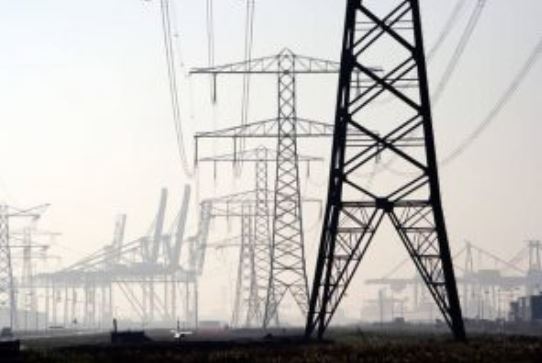Hot Stories
Recent Stories
Power: FG Seeks Fresh $3bn Loan As Darkness Pervades Nigeria
Posted by George on Sun 03rd Nov, 2019 - tori.ngSimilarly, darkness abounds in many Nigerian cities and villages in spite of the privatisation of the power sector in November 2013.
Nigeria’s power sector has consumed billions of dollars but the supply of electricity across the country is still appalling, Okechukwu Nnodim writes
Despite the humongous funds so far pumped into the Nigerian Electricity Supply Industry without commensurate power supply, more billions of dollars are on the way for the sector.
Similarly, darkness abounds in many Nigerian cities and villages in spite of the privatisation of the power sector in November 2013.
Since the sector was privatised, the highest quantum of power generated on the grid was 5,074.7 megawatts on February 2, 2016, while the highest maximum daily energy wheeled nationwide was 109,372MW on the same day.
Power generation, however, has been hovering around 3,500MW and 4,000MW due to various challenges confronting the sector.
According to industry stakeholders, financial interventions in the sector by both the Federal Government and international agencies over the years have not yielded the desired results no thanks to several challenges especially corruption and bad politics bedevilling the sector.
Amid this, the government targets to further invest an additional N1.65tn in the sector. The new investments include the Federal Government’s planned $3bn (about N918bn) fresh World Bank loan, the N600bn power sector intervention approved by President Muhammadu Buhari, and the N133.5bn total allocation for the Federal Ministry of Power in the 2020 appropriation bill.
Findings by our correspondent showed that over N3.98tn worth of investments had been made in the power sector by both the government and multilateral donor agencies so far.
As a result, stakeholders insist that the fresh investments the government is planning to make in the power sector call for scrutiny and transparency.
For instance, operators and experts under the aegis of the Nigerian Association of Energy Economics expressed concern over the low level of energy output in Nigeria despite the humongous investments in the country’s power and petroleum sectors.
NAEE is an affiliate of the International Association for Energy Economics, which has presence in over 70 countries across the globe.
Speaking on behalf of the association, its President, Yinka Omorogbe, said, “People in Nigeria don’t realise that practically every development issue can be traced to a lack of modern energy. You can’t get good teachers into village schools if these villages have no electricity or modern water systems driven by energy.
“You also can’t have basic health without energy, because medicines need to be kept at certain temperatures.”
On Sunday, the Minister of Finance, Budget and National Planning, Zainab Ahmed, reportedly said the $3bn loan request for the expansion of the power transmission and distribution networks in the industry had been finally approved by the World Bank.
Source: Punch
Despite the humongous funds so far pumped into the Nigerian Electricity Supply Industry without commensurate power supply, more billions of dollars are on the way for the sector.
Similarly, darkness abounds in many Nigerian cities and villages in spite of the privatisation of the power sector in November 2013.
Since the sector was privatised, the highest quantum of power generated on the grid was 5,074.7 megawatts on February 2, 2016, while the highest maximum daily energy wheeled nationwide was 109,372MW on the same day.
Power generation, however, has been hovering around 3,500MW and 4,000MW due to various challenges confronting the sector.
According to industry stakeholders, financial interventions in the sector by both the Federal Government and international agencies over the years have not yielded the desired results no thanks to several challenges especially corruption and bad politics bedevilling the sector.
Amid this, the government targets to further invest an additional N1.65tn in the sector. The new investments include the Federal Government’s planned $3bn (about N918bn) fresh World Bank loan, the N600bn power sector intervention approved by President Muhammadu Buhari, and the N133.5bn total allocation for the Federal Ministry of Power in the 2020 appropriation bill.
Findings by our correspondent showed that over N3.98tn worth of investments had been made in the power sector by both the government and multilateral donor agencies so far.
As a result, stakeholders insist that the fresh investments the government is planning to make in the power sector call for scrutiny and transparency.
For instance, operators and experts under the aegis of the Nigerian Association of Energy Economics expressed concern over the low level of energy output in Nigeria despite the humongous investments in the country’s power and petroleum sectors.
NAEE is an affiliate of the International Association for Energy Economics, which has presence in over 70 countries across the globe.
Speaking on behalf of the association, its President, Yinka Omorogbe, said, “People in Nigeria don’t realise that practically every development issue can be traced to a lack of modern energy. You can’t get good teachers into village schools if these villages have no electricity or modern water systems driven by energy.
“You also can’t have basic health without energy, because medicines need to be kept at certain temperatures.”
On Sunday, the Minister of Finance, Budget and National Planning, Zainab Ahmed, reportedly said the $3bn loan request for the expansion of the power transmission and distribution networks in the industry had been finally approved by the World Bank.
Source: Punch
Top Stories
Popular Stories
Stories from this Category
Recent Stories























































